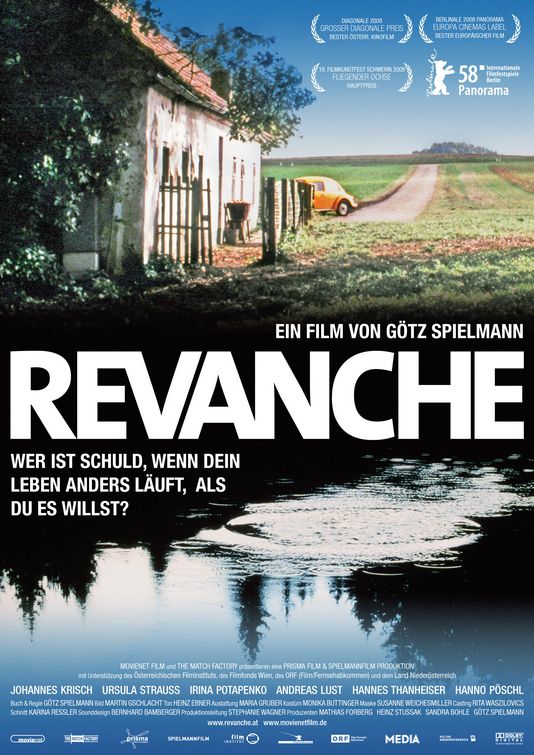
The
Spokane International Film Festival is celebrating its 11th year this month. I am celebrating my first year of attendance, which really is a pity. I like to consider myself something of movie connoisseur who has some standards for his celluloid-based entertainment and who also likes to see what stories people outside of Hollywood are telling on the big screen. Forgoing an event like this, one which promises films from across continents and pieces which would never otherwise play on a screen in Spokane, is really quite unforgivable. As penance and as celebration of this opportunity finally seized, I offer this blog up to my thoughts on all those feature-length films I manage to fit in over this wonderful, wonderful week.
Seeing as how this was not only my first Spokane festival but first film festival ever, I could hardly have hoped for a better film to break into it all than the Swedish
Let the Right One In. For months, it had been steadily gathering exceedingly positive reviews and excellent press coverage in the States. It currently stands at
82% on Metacritic and a freaking
97% on Rotten Tomatoes. When I first checked the screening schedule, it was the first to catch my eye, and the only one I was absolutely determined to see.
All of which made finally seeing it something of a let down. Good thing
Australia and
The Curious Case of Benjamin Button had already gone a long way toward inuring me against this possibility earlier in the winter.
Twelve-year-old Oskar, even paler and blonder than the young Macauly Caulkin, is tormented by bullies. He wants to be strong. He wants to cut them and make them squeal like pigs. Instead he meets Eli, the odd dark-haired girl who doesn't wear shoes in the snow because she's forgotten how to feel cold. If you managed to miss it before coming to the theater, Eli's a vampire. She announces her more feral nature to the audience by latching on to the neck of some unfortunate, lonely souse early on. It's a nice switch up, with such an emphasis on predators and prey throughout the film, to see the little girl, typically the weakest and most vulnerable of the characters, become the most powerful and terrifying. Anyway, despite Eli's warnings against such a relationship, they become friends. They give one another advice. They help one another grow. They make mistakes. They do stupid things for the sake of the other. Then they go and do something brave. They even use Morse code to communicate between their apartments. All of this is great. These are the fundamentals of any great love story. The problem is the emotional connection necessary to make it fantastic never appeared for me. To be sure, the Rubik's Cube scene and Oskar's first hug with Eli have more tenderness and sweetness in them then anything that goes on between Brad Pitt and Cate Blanchett for the first two hours of
Curious Case, but then Tomas Alfredson has to go and weird it all up by having Eli dive into Oskar's dripping blood and scream at him to get out, presumably before she goes after the fresher stuff.
So we come to the crux of the situation.
Right One is a vampire movie.
Right One also is a coming-of-age and love story. It takes both of all of these premises seriously, but that doesn't work. If vampires are at all played as something less than cool, calm, collected versions of evil incarnate, they lose their menace to the point of becoming ridiculous. Requiring an invitation to enter any building is kind of a glaring weakness. Just consider any book in the
Twilight series. Totally lame vampires. When Eli unwillingly shoves her face into the pool of Oskar's blood, it has about the same level of terror as when the afflicted in
The Shaggy Dog runs after cats while still human.
Make no mistake, I found
Right One to be an absolutely beautiful movie. The Stockholm suburbs in the 1980's may be a joyless place in the dead of winter, but the director captured something beautiful in that stark, desolate environment. I could have watched that drifting snow for hours. It's just too bad that couldn't be translated into any sort of enduring emotional connection for me. I really wanted to love this movie.
Update: At the Spokane International Film Festival,
Let the Right One In tied
Revanche with
for Best Feature Film.





